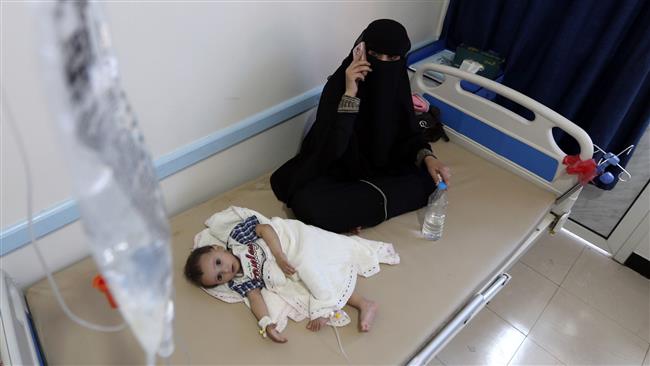
RNA - "Could WHO and the cholera-specific partners have scaled up more quickly the case-management work, and could we have tried to mobilise more doses for cholera vaccine given the very limited supply globally of cholera vaccine? I think so - yes," Dr Peter Salama told reporters, New Arab reported.
Despite this, he still expressed oprtimism that "we are turning the corner" on the water-borne disease that has claimed over 2,000 lives and had over 700,000 suspected cases this year.
The WHO official spoke on Yemen's crisis as the UN agency and its partners presented their plans to cut the number of cholera deaths annually by 90 percent in 13 years.
The 2030 goal is the latest addition to the WHO's aim of sharply reducing major diseases around the world. Efforts are already underway by the WHO to tackle malaria, measles, polio, guinea worm and AIDs.
So far, smallpox remains the only disease to have been totally eradicated.
Over the course of Yemen's war, which has lasted over two years, the country's infrastructre has deteriorated and left over 80 percent of its population reliant on humanitarian aid.
Blockades imposed by the Saudi-led coalition have prevented vital medical supplies from entering the country.
This summer, Yemen was due to receive a million doses of cholera vaccine, however, Hadi-backed forces opted not to take them.
According to Salama, Yemen's government said that the supply would be insufficient to deal with the country's needs.
Outside of Yemen, concerns are mounting over a potential cholera outbreak among Rohingya refugees who have fled their homes in Myanmar to neighboring Bangladesh.
Bangladesh has taken in 500,000 ethnic Rohingya people since the latest outbreak of violence in Rakhine state in August.
On Friday, WHO officials announced that 900,000 doses of cholera vaccine will be sent to Bangladesh to stave off a possible outbreak among the refugees.
Salama said that vaccinations will begin in the next two weeks.
847/940